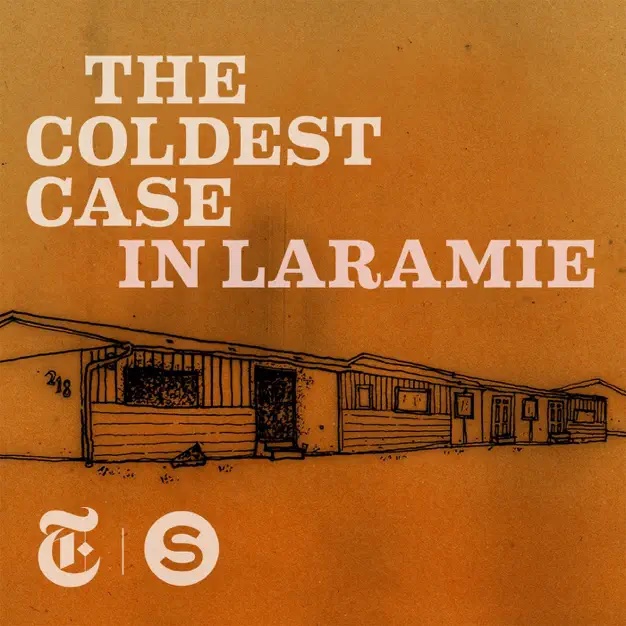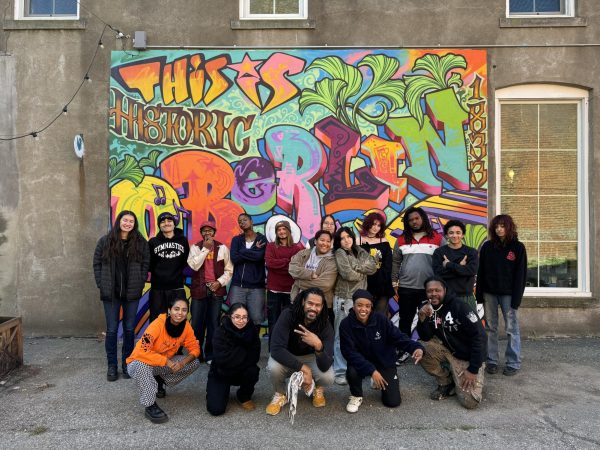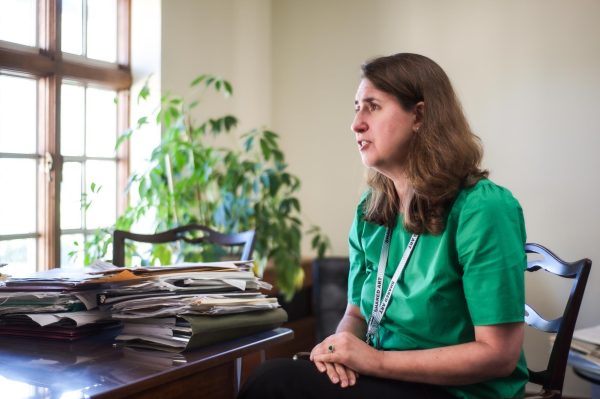New Serial Productions Release Leaves Listeners Wanting More
Photo courtesy of The New York Times
Serial Production’s latest podcast, The Coldest Case in Laramie, was released last week in partnership with The New York Times.
Last week, Serial Productions and The New York Times released their latest eight-episode podcast series, The Coldest Case in Laramie. Serial Productions has been reshaping the medium of podcasting for almost a decade. Their first podcast, Serial, was launched in 2014 as a spinoff of the beloved radio show This American Life. Serial’s first season was known for revolutionizing the form of audio reporting as a medium. S-Town, Serial’s 2017 release, further defined not only the place of the production company as a staple of documentary culture, but expanded the ability to tell stories through the podcast form.
Serial launched before the crime podcast boom, and differs from most crime dramas because there is no expectation of resolution. Through experimental journalism and storytelling, these podcasts create a literary narrative out of the unexpected sides of investigations and the criminal justice system. The reason for such a dedicated fanbase likely lies in another unique quality of Serial podcast releases: the personal, often vulnerable character of the reporters themselves.
In The Coldest Case in Laramie, Kim Barker, a New York Times journalist, brings listeners along for a pilgrimage back to her Wyoming hometown, Laramie. Amid the pandemic and what seemed to be a lull in stories to pitch her editor, Barker searches up a murder case that had been haunting her since it occurred in 1985. At the time, Barker was a kid living in Laramie, and the victim, Shelli Wiley, was a student at the University of Wyoming. Barker recalls the town as grim and miserable, before and after the brutal murder of Wiley. Although Barker had revisited the Wiley case a number of times since the murder, she found a new development while surfing the internet during quarantine. In 2016, Fred Lamb, a former Laramie police officer, was arrested for the murder due to circumstantial evidence. Blood evidence and witness testimonies had apparently pointed to Lamb as a suspect all the way back in 1985, at which time he had even made a confession-like statement, but both then and in 2016, the charges against him were dropped. While this may seem like an easy case of cops protecting their own, and additional interactions with suspects throughout the case make evident that racism and sexism are at play in the case, the story takes an alternative route.
If you want to listen to a true crime podcast, Serial Productions is not the place to find that. This is not to say that, as listeners, we should reject podcasts which take more unconventional routes to storytelling. An engaging podcast or audio documentary does not depend on finding an answer to a question. What the podcast has done in the past, and continues to pride itself on, is its ability to tell a fulfilling story that strays from its original direction. However, that narrative still has to go somewhere. In S-Town, what started as a murder investigation becomes a story of the tragic mind of a particular character, as well as the development of the host, Brian Reed, himself.
The setting of Laramie is reminiscent of the rural, gothic charm listeners grew to love in S-Town, despite the negative perspectives of many residents. In The Coldest Case in Laramie, however, Barker neither sits with one voice or one scene long enough to truly breed the unexpected fondness that the production company is known for. Serial historically produces stories that stick with you, perhaps most famously in the case of Adnan Syed in their first season. Unfortunately, I am not sure what, if anything, I will remember about this latest release.
The most impressive aspect of the podcast is the shocking access to case files and interviews that Barker is able to compile into the story. Barker herself seems repeatedly surprised by the openness many people had to speaking with her; receiving interviews with Wiley’s family, the officer in charge of her case, lawyers, and even, finally, Fred Lamb — believed to be the top suspect according to Wiley’s family and some witnesses. Additionally, Barker is given much of the case documentation from Lamb’s lawyer, including his recorded “confession,” which proves far less damning in full.
The fact that Wiley’s murder remains unsolved after the eight-episode podcast is the least of the production’s issues. Even with a personal connection, strong reporting, and compelling investigation, the narrative itself feels somewhat juvenile. Although Barker shares her personal growth and her changing perspective on the place in which she was raised, the moral of the story turns out to be painfully elementary. It is best exemplified in one of her last lines, in which she states, “We’re all unreliable narrators, at least in our own stories.” This epiphany could have been the concluding paragraph to any first-year comp lit paper. Although it ties together moments of misremembering from the case with Barker’s own tainted memory of Laramie, blurred truths being a recurring theme in almost all of the Serial releases makes this story’s finale seem cheap and redundant.
The Coldest Case in Laramie is the first release since the recent acquisition of Serial Productions by The New York Times. Despite the strong journalism, the story feels unfinished, leaving some fans with low expectations that upcoming Serial releases will meet the high standard for audio storytelling previously set by the company.








